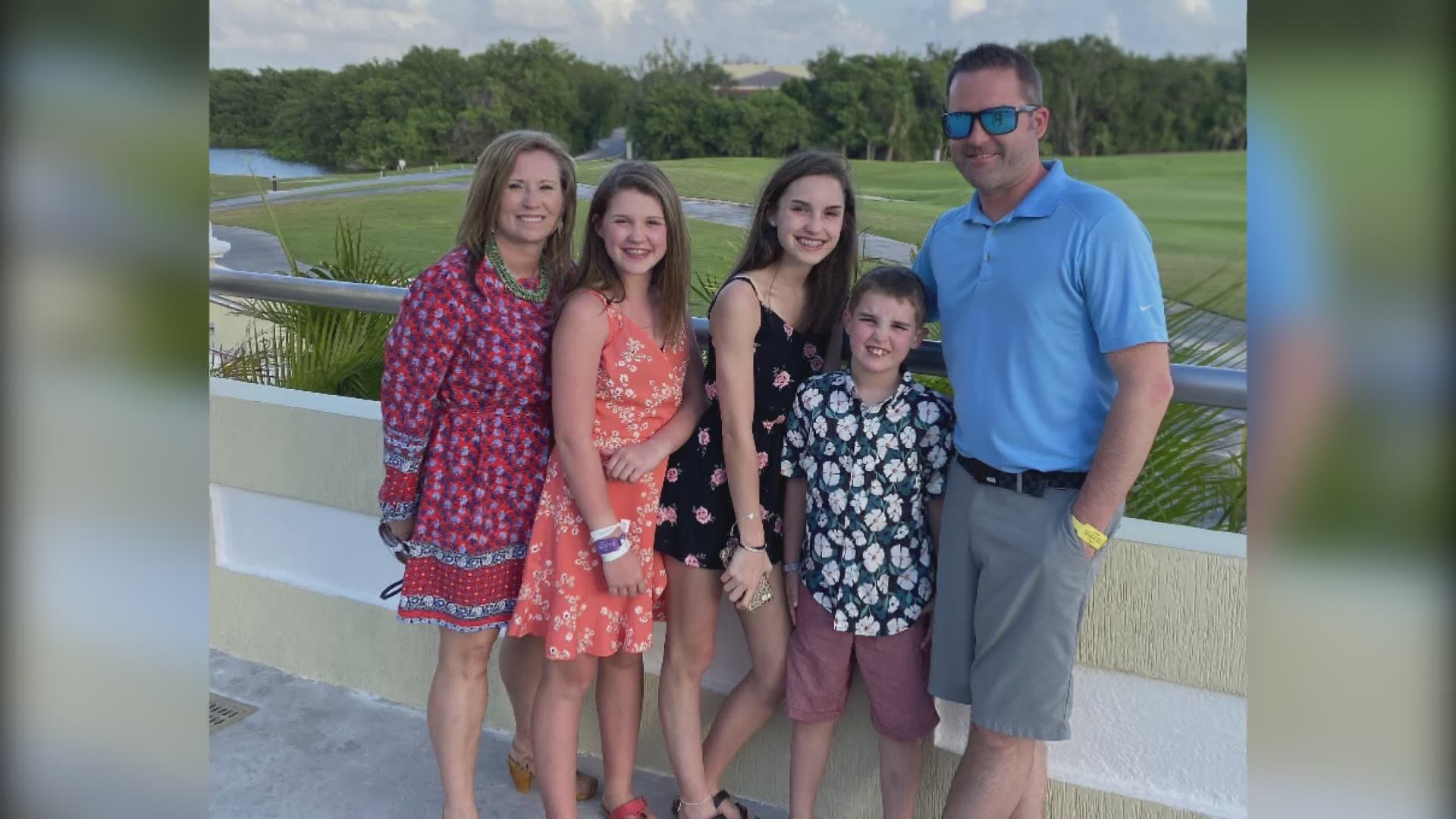GARDINER, Maine — When Nicole Cooley learned her 8-year-old son tested positive for COVID-19, she says she went white.
The diagnosis terrified her but not for the reason you might think.
"The nurse practitioner says, 'Mom, he's going to be fine.' And I said, 'I know he's going to be just fine, I'm worried about the other people we've interacted with.'"
Like many families, the Cooley's were keeping their circle tight, but the kids were still going to school and dance classes.
Cooley says the news was emotional for a number of reasons. "It just becomes this overwhelming moment of 'oh my gosh,' and then, am I going to be ostracized because I'm positive?"
While there was fear of the stigma, Cooley says there was a much greater fear one of her children could have passed the virus along to her elderly mother.
Holding back tears, Cooley tells NEWS CENTER Maine, "To have to deliver the news to my mom that, 'By the way, we've had it and you've interacted with us and I feel horrible. I feel horrible because I don't know how your body is going to react to it.'"
The brief interaction with her mother came over the Thanksgiving holiday. Cooley says the family had been particularly careful leading up to the holiday, knowing her mother would be joining them. While they knew it was a risk, Cooley had very recently and abruptly lost her father, and it was important to them to have the family together.
Fortunately, her mother did not contract the virus. "We cried and laughed and thanked heaven that she was negative," Cooley said.
Clinical psychologist Christopher Muncie says feelings of guilt associated with COVID-19 are common.
"Some people have been experiencing feelings of guilt for just having contracted the virus. Somehow this feeling of their body has let them down, their weak and vulnerable. Or maybe transmitted to someone else and feeling that they're somehow responsible as if they knowingly afflicted harm. In the majority of cases, it's irrational," Muncie said.
After learning the news of her children's diagnoses, Cooley set aside her concern over the stigma, and how people would react, and contacted everyone she could think of her family having interacted with over the past two weeks.
"For me, it was important to share the news with everyone we'd been in contact with for the last fourteen days. Say, 'Here's what we need to share with you. I'm so sorry.'"
It's a difficult, but essential phone call.
Cooley advises, "Don't be scared of what someone is going to say on the other line, because you're just doing your job."
Cooley suggests, from personal experience, that folks should position themselves to be their own "contact tracers." She advises folks to keep tabs on everyone they come into contact with and continue to keep their circles small.
She also suggests folks have a plan in place for how they'll get through at least 10 days of isolation if someone tests positive.

